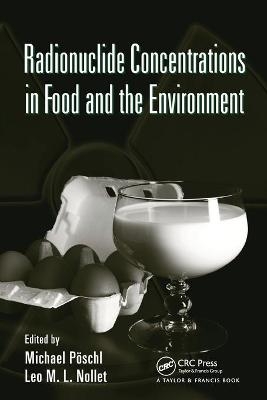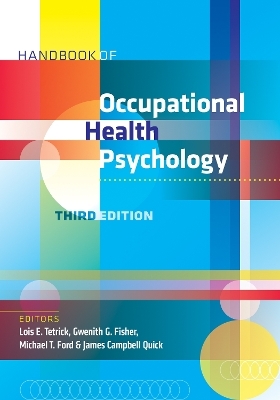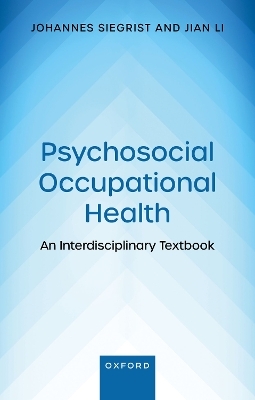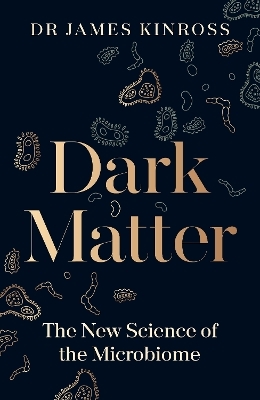
Radionuclide Concentrations in Food and the Environment
Seiten
2019
CRC Press (Verlag)
978-0-367-45349-7 (ISBN)
CRC Press (Verlag)
978-0-367-45349-7 (ISBN)
As radiological residue, both naturally occurring and technologically driven, works its way through the ecosystem, we see its negative effects on the human population. This comprehensive book explains environmental behavior of different radionuclides, their transfer through the ecosystem, subsequent concentrations in the raw food materials, estimat
As radiological residue, both naturally occurring and technologically driven, works its way through the ecosystem, we see its negative effects on the human population. Radionuclide Concentrations in Food and the Environment addresses the key issues concerning the relationship between natural and manmade sources of environmental radioactivity, their transportation through the ecosystem, and the subsequent radionuclide concentrations in foods and the human population. The book discusses the negative effects of environmental radioactivity on plants and animals, as well as the effects of radiocontaminated food on human health, and perspectives for transfer prevention.
Beginning with the fundamentals of matter and the behavior of particles, the text lays a solid foundation for discussions on the source of radionuclides and their concentrations in air, water, and soil. Using predictive modeling, the authors examine the transfer of radionuclides through ecosystems and their effects on individual substances. The book provides up-to-date information on monitoring programs and legislation, detailed descriptions of detection systems, and evaluations of safety protocols in radioanalytical laboratories and in food processing. The authors devote considerable attention to the nuclear and radiological terrorist threat, illicit trafficking and masking of radioactive materials, event scenarios, and radiological forensics.
As radiological residue, both naturally occurring and technologically driven, works its way through the ecosystem, we see its negative effects on the human population. Radionuclide Concentrations in Food and the Environment addresses the key issues concerning the relationship between natural and manmade sources of environmental radioactivity, their transportation through the ecosystem, and the subsequent radionuclide concentrations in foods and the human population. The book discusses the negative effects of environmental radioactivity on plants and animals, as well as the effects of radiocontaminated food on human health, and perspectives for transfer prevention.
Beginning with the fundamentals of matter and the behavior of particles, the text lays a solid foundation for discussions on the source of radionuclides and their concentrations in air, water, and soil. Using predictive modeling, the authors examine the transfer of radionuclides through ecosystems and their effects on individual substances. The book provides up-to-date information on monitoring programs and legislation, detailed descriptions of detection systems, and evaluations of safety protocols in radioanalytical laboratories and in food processing. The authors devote considerable attention to the nuclear and radiological terrorist threat, illicit trafficking and masking of radioactive materials, event scenarios, and radiological forensics.
Poschl, Michael; Nollet, Leo M.L.
Introduction: What are Radionuclides? Radionuclides: Sources. Radionuclide Concentrations in Air. Radionuclide Concentrations in Water. Radionuclide Concentrations in Soils. Radionuclide Transport Processes and Modeling. Effects of Radioactivity on Plants and Animals. Radionuclide Concentrations in Foodstuffs and Food Raw Materials. Health Effect of Radionuclides in Food on Humans. Analysis and Detection Methods. Unmasking Nuclear Smugglers. Radiation Safety Programs. Regulations.
| Erscheinungsdatum | 03.12.2019 |
|---|---|
| Verlagsort | London |
| Sprache | englisch |
| Maße | 152 x 229 mm |
| Gewicht | 453 g |
| Themenwelt | Medizin / Pharmazie ► Allgemeines / Lexika |
| Medizin / Pharmazie ► Medizinische Fachgebiete ► Arbeits- / Sozial- / Umweltmedizin | |
| Medizin / Pharmazie ► Medizinische Fachgebiete ► Pharmakologie / Pharmakotherapie | |
| Studium ► Querschnittsbereiche ► Klinische Umweltmedizin | |
| Naturwissenschaften ► Biologie | |
| Technik ► Lebensmitteltechnologie | |
| ISBN-10 | 0-367-45349-5 / 0367453495 |
| ISBN-13 | 978-0-367-45349-7 / 9780367453497 |
| Zustand | Neuware |
| Haben Sie eine Frage zum Produkt? |
Mehr entdecken
aus dem Bereich
aus dem Bereich
Buch | Softcover (2023)
American Psychological Association (Verlag)
125,95 €
An Interdisciplinary Textbook
Buch | Softcover (2024)
Oxford University Press (Verlag)
49,85 €


